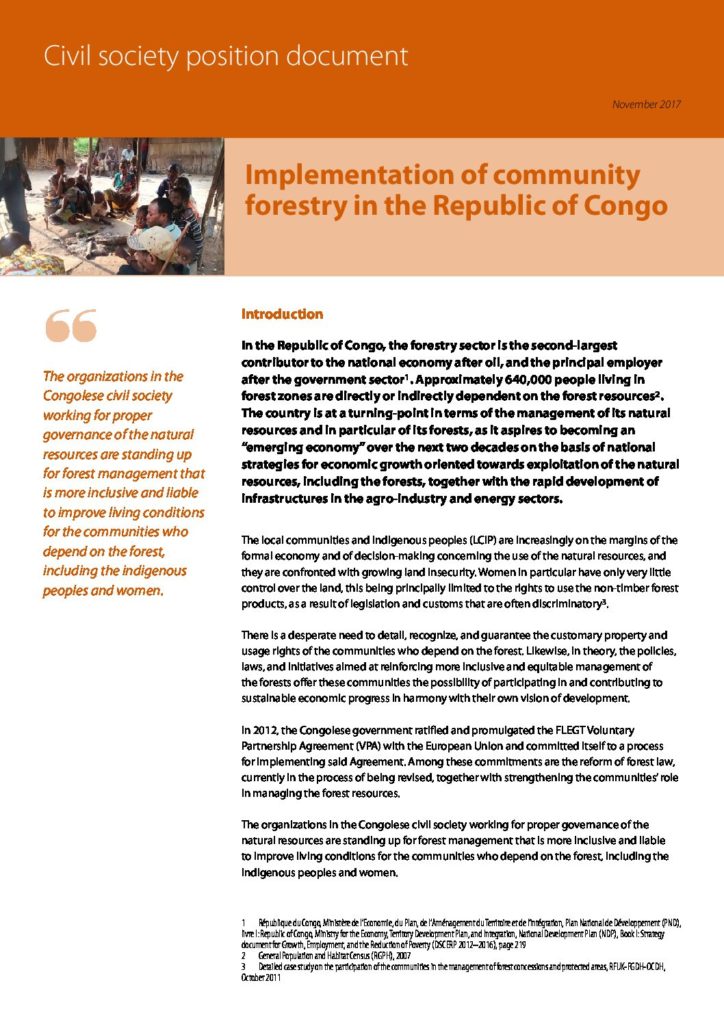
In the Republic of Congo, the forestry sector is the second-largest contributor to the national economy after oil, and the principal employer after the government sector. Approximately 640,000 people living in forest zones are directly or indirectly dependent on the forest resources. The country is at a turning-point in terms of the management of its natural resources and in particular of its forests, as it aspires to becoming an “emerging economy”.
The local communities and indigenous peoples are increasingly on the margins of the formal economy and of decision-making concerning the use of the natural resources, and they are confronted with growing land insecurity.
There is a desperate need to detail, recognize, and guarantee the customary property and usage rights of the communities who depend on the forest. Likewise, in theory, the policies, laws, and initiatives aimed at reinforcing more inclusive and equitable management of the forests offer these communities the possibility of participating in and contributing to sustainable economic progress in harmony with their own vision of development.
